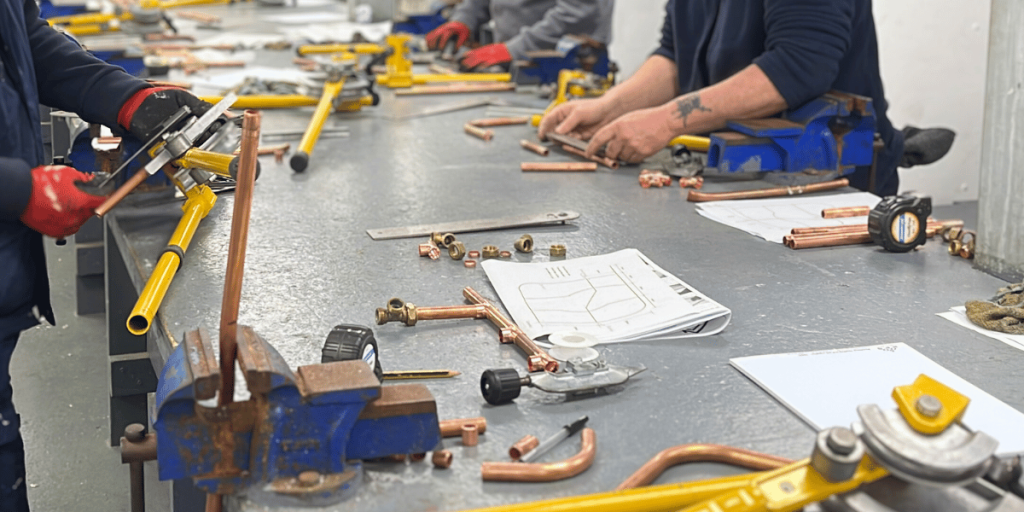
Whatever industry you’re working in, formal qualifications can be one of the most effective ways of reinforcing the skills and knowledge you possess.
Why are plumbing qualifications important?
When it comes to the plumbing sector, there are several different qualifications and accreditations that you might want to consider pursuing, from industry-recognised NVQs to advanced add-on courses built to complement your existing skill set.
Whatever stage of your plumbing career, we’ve covered a few of the reasons why formal plumbing qualifications, while not always mandatory, are still incredibly important to the industry.
Health and Safety
Above all else, completing formal training under the supervision of an experienced and qualified tutor is the best way to ensure you fully understand how to protect yourself and those around you when working in the field.
Health and Safety will form a key part of any accredited plumbing qualification, with tutors and assessors having to abide by the latest industry standards and regulations.
Quality of work
To gain formal qualifications such as an NVQ, your work must meet a certain standard in terms of quality. To prove your skill level when seeking an NVQ, an assessor will visit you in your workplace, where you can prove your competence.
In this sense, a plumbing NVQ acts as clear proof of your skill in the field and as a testament to the knowledge you possess, something which can prove valuable when it comes to standing out to both potential employers and customers. It also increases the scope of work that you could take on.
Keep pace with industry changes
Like most construction sectors, the plumbing industry is constantly evolving, meaning those working in it often need to get to grips with new technologies, practices and regulations.
As an example, more and more homeowners are now looking for ways to save money in response to rising bills, making additional qualifications such as an energy efficiency course particularly beneficial.
Likewise, other complementary qualifications could include a tiling or bathroom fitting course, with these allowing you to offer a fuller service to customers.
Similarly, any plumber who wants to carry out unsupervised work with a local water company will need to complete a water regulations course and join WIAPS, this can help avoid potentially costly delays to work.
Increase your scope of work
While qualifications aren’t a legal requirement for plumbers to begin working in a domestic setting, those wanting to increase the scope of work they’re able to take on to include site work will need to apply for a CSCS card, for which an NVQ is mandatory.
Naturally, increasing the amount of work you’re qualified to take on can also have a positive effect on your earning potential and progression opportunities.
Interested in pursuing your plumbing qualifications? Able Skills offers routes for both those already working in the industry and for complete beginners. If you’ve already accumulated three years experience, then the City & Guilds Level 2 Plumbing NVQ for experienced Plumbers acts as a streamlined pathway toward gaining your NVQ.
If you’re just taking your first steps in the industry, then the City & Guilds Level 2 Plumbing Course is an in-depth package of learning built by time-served professionals designed to equip you with the skills and knowledge needed to begin seeking work in a domestic setting, and opening the door to your NVQ assessment.